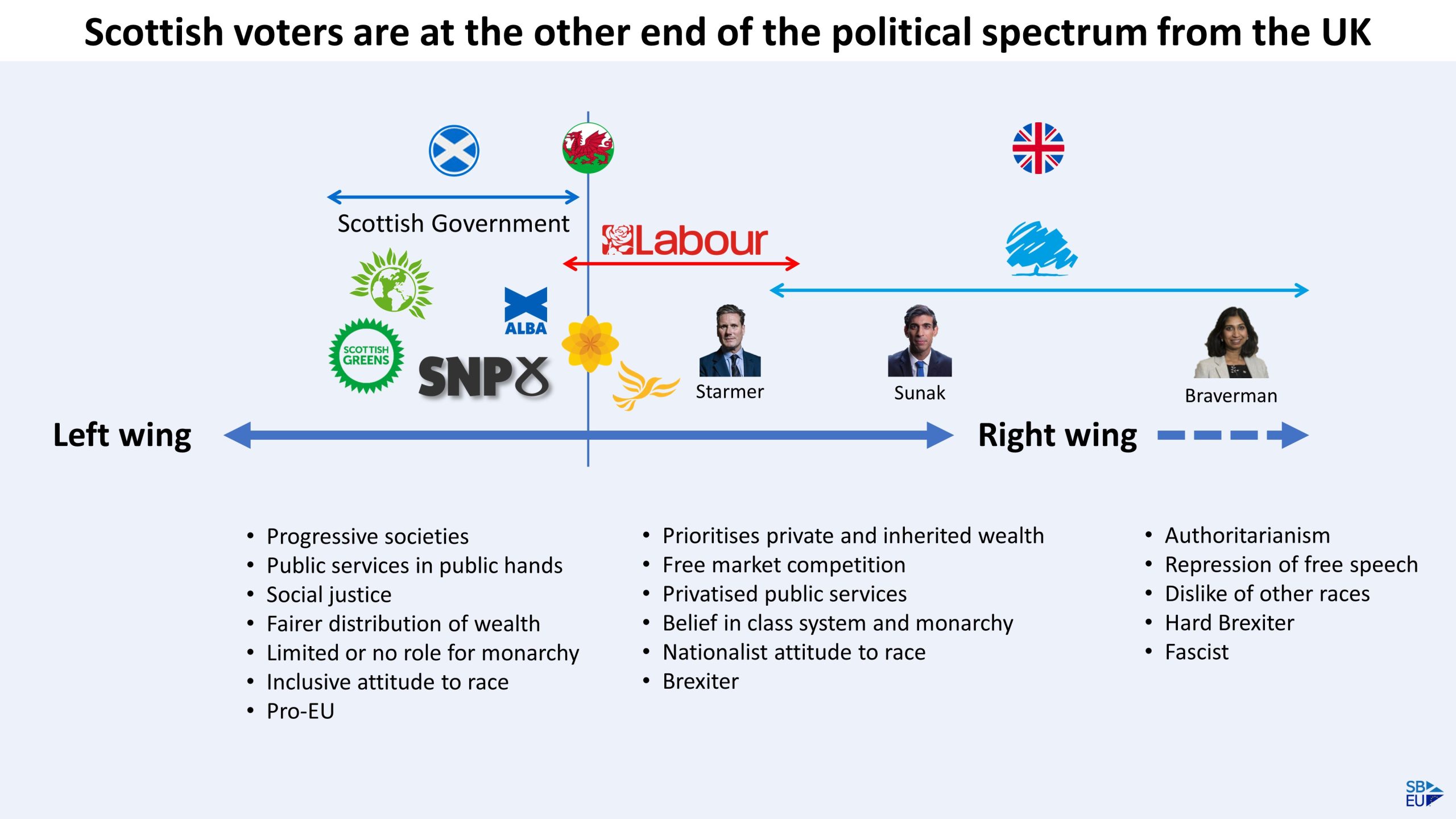Scottish voters are at the other end of the political spectrum from the rest of the UK – in particular England, which dominates the UK’s politics. Scottish politics and political parties are dominated by a centre-left preference from voters. This is characterised by:
- Progressive societies
- Public services in public hands
- Social justice
- Fairer distribution of wealth
- Limited or no role for monarchy
- Inclusive attitude to race
- Pro-EU.
These are typical preferences of a modern Europian democracy based on mostly socialist principles.
However England, and hence Westminster politics and parties, is much more right wing. And increasingly so. Both the Westminster parties – Labour and the Tories – have developed more and more right wing policies. these are characterised by:
- Prioritises private and inherited wealth
- Free market competition
- Privatised public services
- Belief in class system and monarchy
- Nationalist attitude to race
- Brexiter.
And are typical of Starmer’s Labour Party. This may be due to the nature of the Westminster’s legacy First Past The Post (FPTP) electoral system. Some people argue that there is a relatively small set of right wing swing voters who largley determine who gets to be in power in Westminster. With FPTP, parties only need to have the most votes, and they get all the power. So Labour must concentrate its policies to attract these swing voters – or it will struggle to gain or retain power.
The Tory story is different. As a result of Johnson’s explusion of many more centrist Tories in 2019, in order to get the hard Brexit he wanted, the Tory party has been flooded with former UKIP extremists. Their right wing dogma is characterised more by:
- Authoritarianism
- Repression of free speech
- Dislike of other races
- Hard Brexiter
- Fascist.
In an Independent Scotland there will be no legacy FPTP electoral system, a naturally more centre-left preference from voters, and no Westminster to dictate UK-wide policies based on disliked right-wing beliefs.

Leave a Reply